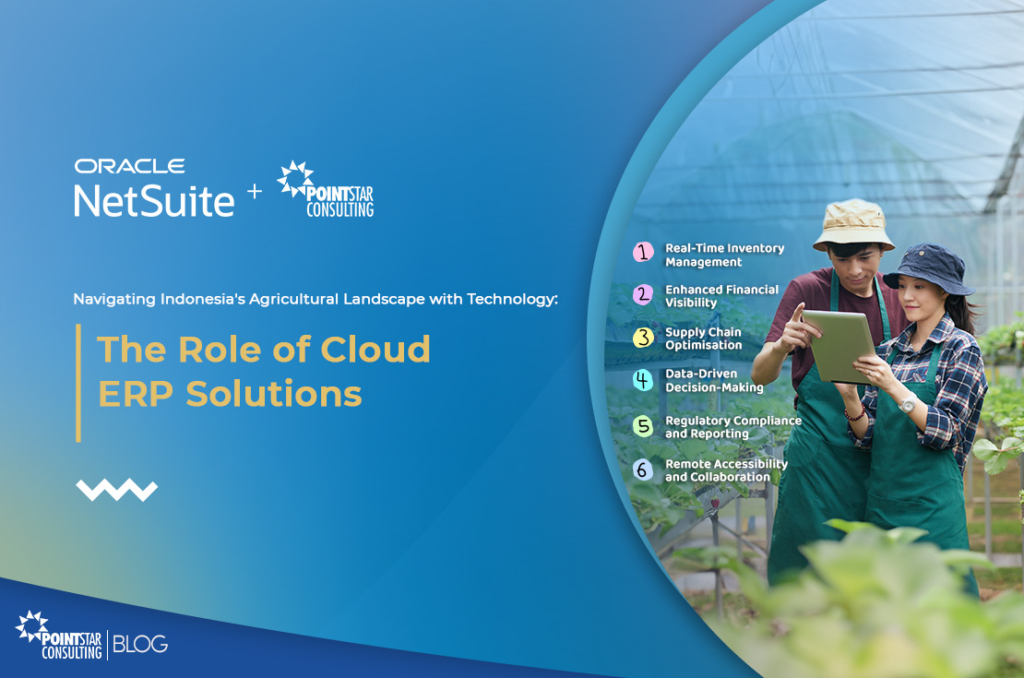Introduction
Agriculture is a foundational Southeast Asian industry, contributing approximately 11% of the region’s gross domestic product (GDP). This sector remains crucial for its economic contributions and sustaining millions of livelihoods across the region. In Indonesia, agriculture plays an even more significant role, with the country recognised as one of the world’s leading producers and exporters of essential commodities such as palm oil, natural rubber, cocoa, coffee, rice, and spices. The sector accounts for over 12% of Indonesia’s national GDP and is the largest employment provider, supporting millions of Indonesians.
Indonesia, despite its vast agricultural potential, faces challenges and opportunities in the sector. For instance, the demand for fish and meat is steadily increasing. Indonesia is the second-largest poultry producer in the Asia Pacific and one of the world’s largest seafood producers. However, the fisheries sector contributes less than 3% to Indonesia’s GDP, despite the nation’s vast ocean territory. Recognising the untapped potential of its marine resources, the Indonesian government has prioritised developing this sector, aiming to establish Indonesia as a major player in global maritime commerce.
Climate change also represents a significant challenge to the agriculture industry across Southeast Asia. Unpredictable weather patterns, floods, and droughts have all contributed to a projected 3.1% reduction in crop yields across Southeast Asia, impacting food security and economic stability.
Leveraging Technology to Overcome Agricultural Challenges
To address these issues, technology has become essential in helping the agricultural sector manage challenges, improve efficiency, and ensure sustainable growth. By enabling agriculture businesses to optimise resources in real-time, technology helps increase productivity and reduce waste, giving us hope for a more efficient and sustainable future.
There is a wide array of solutions offered for different pain points facing the agricultural sector. However, in this article, we will examine the role of a cloud ERP (enterprise resource planning) system in helping businesses in the agriculture industry.
The Role of Cloud ERP in Indonesia’s Agricultural Sector
In an increasingly digital world, cloud-based enterprise resource planning (ERP) systems like Oracle NetSuite are invaluable for agricultural businesses, particularly in a dynamic market like Indonesia. By integrating multiple operations—from accounting and inventory management to supply chain logistics—into a single platform, cloud ERP solutions streamline complex agricultural processes and promote informed decision-making.
Key Features and Benefits of Oracle NetSuite for Agricultural Businesses:
Real-Time Inventory Management
Oracle NetSuite’s inventory management features allow businesses to monitor stock levels in real time. This is crucial in agriculture, where perishability and seasonal production cycles demand precise inventory control. Businesses can better meet demand and reduce costs by reducing waste and ensuring timely restocking.
Enhanced Financial Visibility
Oracle NetSuite provides detailed financial insights that help agricultural businesses manage costs and boost profitability. With budgeting, expense tracking, and real-time financial reporting tools, companies gain complete visibility into their financial performance. This is particularly useful for farmers needing to understand cash flow variations throughout the seasonal cycles of their operations.
Supply Chain Optimisation
A cloud ERP like Oracle NetSuite enables agricultural businesses to synchronise supply chain activities seamlessly. By providing a comprehensive overview of supplier relationships, logistics, and demand planning, NetSuite helps optimise the supply chain from farm to market. This improved visibility enables businesses to react swiftly to disruptions, ensuring a steady supply of agricultural goods.
Data-Driven Decision-Making
Oracle NetSuite’s advanced data analytics tools help businesses make informed decisions. By analysing historical data on yields, sales, and market conditions, agriculture companies can better predict trends and allocate resources efficiently, ultimately improving productivity and profitability.
Regulatory Compliance and Reporting
With built-in compliance features, Oracle NetSuite helps agricultural businesses in Indonesia meet national and international regulations, from environmental guidelines to export requirements.
Remote Accessibility and Collaboration
As a cloud-based platform, Oracle NetSuite can be accessed from any device, enabling field workers, supply chain managers, and other stakeholders to stay connected, regardless of location. This is invaluable for large agricultural operations with multiple locations, allowing seamless team collaboration.
Embracing a Sustainable Future with Cloud ERP
In the face of rising demands, climate challenges, and the need for sustainable growth, Indonesia’s agricultural sector can benefit significantly from cloud ERP solutions like Oracle NetSuite. By integrating advanced technology into their operations, Indonesian agricultural businesses are better positioned to boost productivity, optimise costs, and make impactful decisions to achieve long-term sustainability and economic growth.
In a Nutshell
As Southeast Asia’s agricultural hub, Indonesia can potentially strengthen its position globally. By adopting technology-driven solutions, the agricultural sector can overcome current challenges, innovate, and contribute more substantially to the country’s economy and food security. For agriculture in Indonesia, cloud ERP systems such as Oracle NetSuite represent a pathway to achieving a resilient, productive, and sustainable future.



